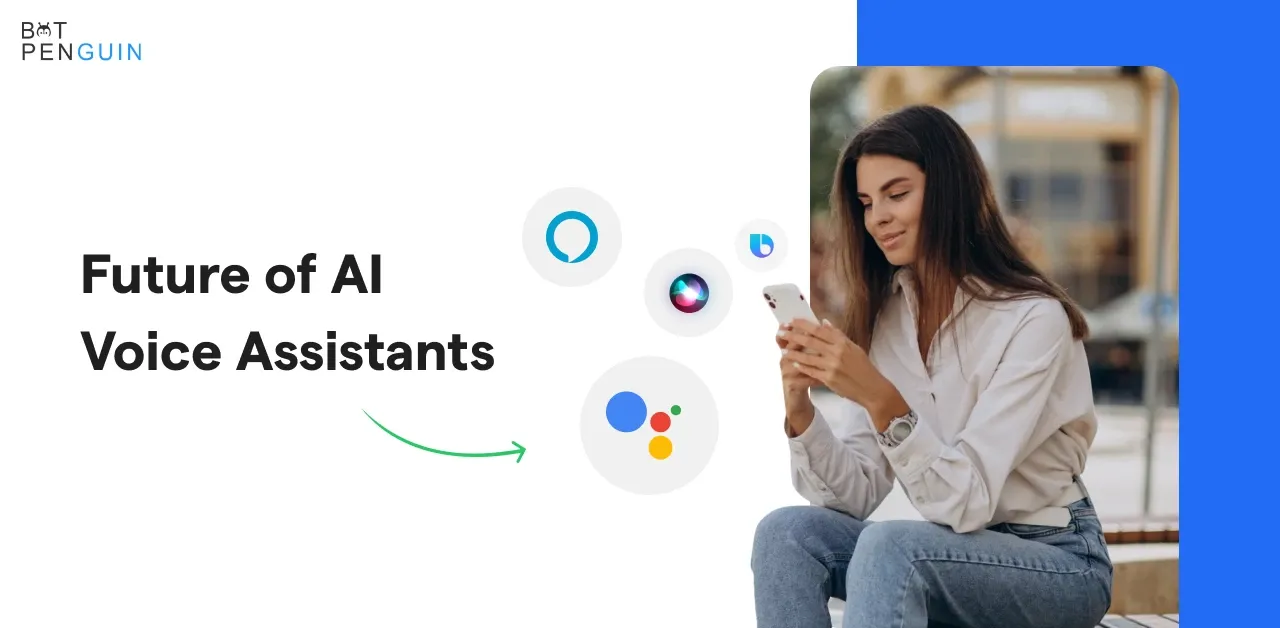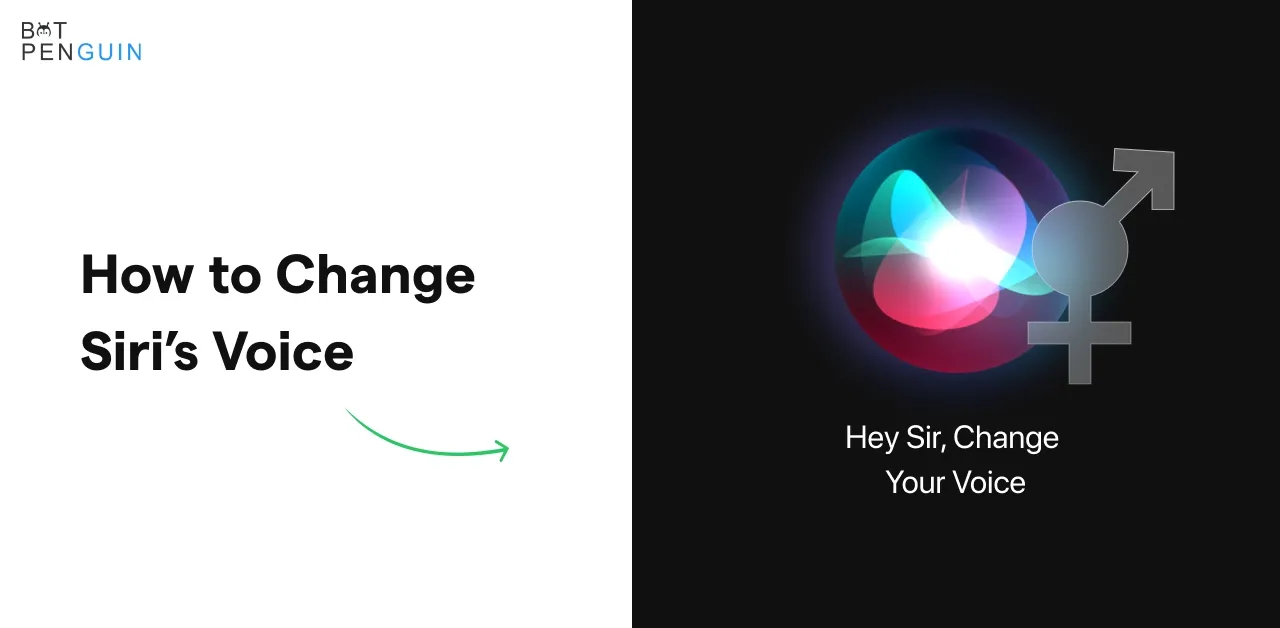Voice-activated technology is dramatically altering the corporate landscape. Yep, you read that correctly.
From pressing buttons to issuing voice instructions, technology has had a significant impact on user experience. Those inclined to accept it as soon as possible have been the frontrunners. Be reassured about how your company will use speech technology across several communication channels. All it takes is serious planning, and the benefits are unlimited if done correctly – decreased client acquisition costs, increased market share, product awareness, and so on.
By 2025, $26.8 billion is predicted to be generated in voice and speech recognition revenue, growing at a compound yearly rate of 17.2%. Meanwhile, it is anticipated that AI — the technology that supports voice and, in many ways, mimics its full potential — will generate $5.8 trillion in value annually.
Smartphones, smart speakers, and other Internet of Things gadgets are no longer only electronic boxes. They are now full-fledged companions that improve our lives in various ways.
This progression is both exhilarating and empowering.
These are some justifications for why voice technology is the way of the future and ought to be used everywhere.
What are voicetech solutions?
Voice tech solutions are a set of technologies that enable voice recognition and natural language processing to create voice-activated devices or applications. These solutions allow users to interact with technology more intuitively and conveniently, using their voices instead of buttons or screens. Some popular voice tech solutions include smart speakers, voice search, speech-to-text, voice-based customer service, and automated speech recognition systems.
These technologies are increasingly used in various industries, from consumer electronics and home automation to healthcare, finance, and customer service. Voice tech solutions are changing the way we interact with technology and have the potential to make our lives easier and more efficient.
Simply put, Voice technology (voicetech) solutions are software applications and tools that enable users to interact with digital devices or systems using their voice instead of typing or clicking.
What makes voice tech important?
Voice tech is important because it enables more natural and intuitive interactions between humans and technology. Instead of relying on traditional input methods like keyboards, mice, or touchscreens, voice tech allows users to communicate with devices and systems using their voices. This is especially important for people with difficulty using traditional input methods, such as those with physical disabilities or visual impairments.
Voice tech also has the potential to make our lives more convenient by allowing us to complete tasks hands-free. For example, with a voice-activated speaker, users can control their smart home devices, make calls, and even order groceries without picking up a phone or pushing a button.
In addition, voice tech can potentially improve business processes and customer service. Automated speech recognition systems can transcribe spoken words into written text, making managing customer inquiries and feedback easier. Voice-based customer service can provide a more personalized and efficient customer experience.
Overall, voice tech solutions are important because they offer a more natural and convenient way to interact with technology, improve accessibility, and have the potential to enhance productivity and customer service.
1. Voice technology enables faster communication
By integrating speech technologies into the sectors, B2B and B2C connections are becoming more efficient and quick. This makes it possible for organizations to multitask and achieve numerous objectives simultaneously. Doing so increases productivity and efficiency because staff may perform various activities with less effort.
Not only that, but speech technology eliminates the "tone" issue that frequently arises in writing, making discussions more transparent and honest.
Additionally, chatbots with featured voice note from the business end quickly replace the time-consuming process of waiting for a call back. This increases Conversion Rate Optimization because customers are frequently pressed for time and seek quick information about the good or service they will receive.
Also, the added " human touch " enhances the customized experience that customers want.
2. Voice technology is simpler and error-free.
The ease of using speech technologies over typing on a keyboard or keypad is now beyond dispute. Virtually everyone can talk, and anyone can easily learn how to use voice-activated devices.
On the other hand, you must type before sending something like an email or a message. In addition, you must employ the appropriate tone, be careful to utilize proper grammar, and attend to several other issues.
Simply put, inputting data into a computer and interacting with a person or organization through written papers take a lot of time. Using speech recognition software instead of voice technology can save businesses time and work.
3. Voicetech solutions are the wave of the future of communication.
Voicetech solutions are the future of communication because they offer a more natural and intuitive way to interact with technology, which can enhance communication in various ways. Here are a few reasons why voice tech is poised to become the future of communication:
- Convenience: One of the primary benefits of voice tech solutions is that they offer a more convenient way to communicate with technology. Voice-activated devices allow users to perform tasks hands-free, which is particularly valuable when using a keyboard or touchscreen may not be feasible, such as when driving or cooking. This convenience factor has made voice tech solutions increasingly popular among consumers and is driving the development of more advanced and sophisticated voice-based interfaces.
- Accessibility: Another key benefit of voice tech solutions is that they can help make communication more accessible for individuals with disabilities. For example, people with limited mobility or visual impairments may have difficulty using a traditional keyboard or touchscreen but can easily communicate using their voice. This accessibility factor is important for companies and organizations looking to create more inclusive communication experiences for their customers and stakeholders.
- Efficiency: Voice tech solutions can also be more efficient than traditional communication methods. For example, automated speech recognition systems can transcribe spoken words into text more quickly and accurately than a human could type. At the same time, voice-based customer service can help resolve issues faster than traditional phone-based support. This efficiency factor is particularly important for businesses looking to improve customer satisfaction and streamline operations.
- Personalization: Voice tech solutions can also offer a more personalized communication experience. With the ability to recognize individual voices and understand natural language, voice assistants can provide tailored responses and recommendations based on the user's preferences and previous interactions with the device. This personalization factor can help users feel more connected to their devices and improve the overall communication experience.
- Innovation: Voice tech solutions represent a major innovation in communication technology. As more companies and organizations adopt voice-based interfaces, we expect to see continued innovation and development in this area, with new features and capabilities being added to enhance the communication experience even further. This innovation factor is particularly important for companies looking to differentiate themselves from competitors and stay ahead of the curve regarding technology trends.
Overall, many factors are driving the adoption of voice tech solutions in the future of communication. With the convenience, accessibility, efficiency, personalization, and innovation that these solutions offer, it is clear that they will play an increasingly important role in how we communicate and interact with technology in the years to come.
What Does Speech Technology's Future Hold?
Voice technology appears to have a promising future. More voice technology uses are anticipated in the future.
The technology underlying voice interfaces is developing quickly as bigger internet companies like Amazon and Google compete for customers' allegiance. Businesses are investing in cutting-edge software and apps catering to customer wants.
The more direct competition serves as a driving force behind this. In addition, many users are moving away from touch-based services and towards voice-activated ones.
Even if voice technology is increasingly ingrained in our daily lives, it is not merely a novelty. There is no denying that voice gives marketers a wealth of potential as we approach the future of "no touch" user experience. Possibilities to maintain competitiveness in a world that is progressively going digital.
Artificial intelligence is a new technology transforming our lives (AI). There are many ways that this technology is influencing our daily activities. Voice technology is now more prevalent than ever, thanks to the extensive use of such technology in the Internet of Things and other voice-activated devices. According to experts, the number of voice assistants is expected to rise sharply in the upcoming years. It will likely be used in practically all aspects of daily life.
Wrapping it up
In the coming years, we will see enhancement not only of technology but also the expansion of speech into practically every aspect of business and life. After all, voice technology is not a single industry. Rather, it is a transformational technology that, like smartphones and the internet before it, impacts practically every business.
On the other hand, voice technologies are expected to make computers and people alike behave more like humans, in contrast to other technological developments that have profoundly altered how we live. The potential in adoption rates, applications, and market are enough to leave one awestruck.
But, putting these technologies into practice is crucial for assuring a company's success and maintaining improved customer interactions for value and profit.
It's difficult to create artificial human ties successfully. However, AI-enabled voice chatbots' advanced neural processing makes this a reality.
So, are you willing to adopt a bot? If so, BotPeguin can help you create an intelligent chatbot in minutes and at no cost.



